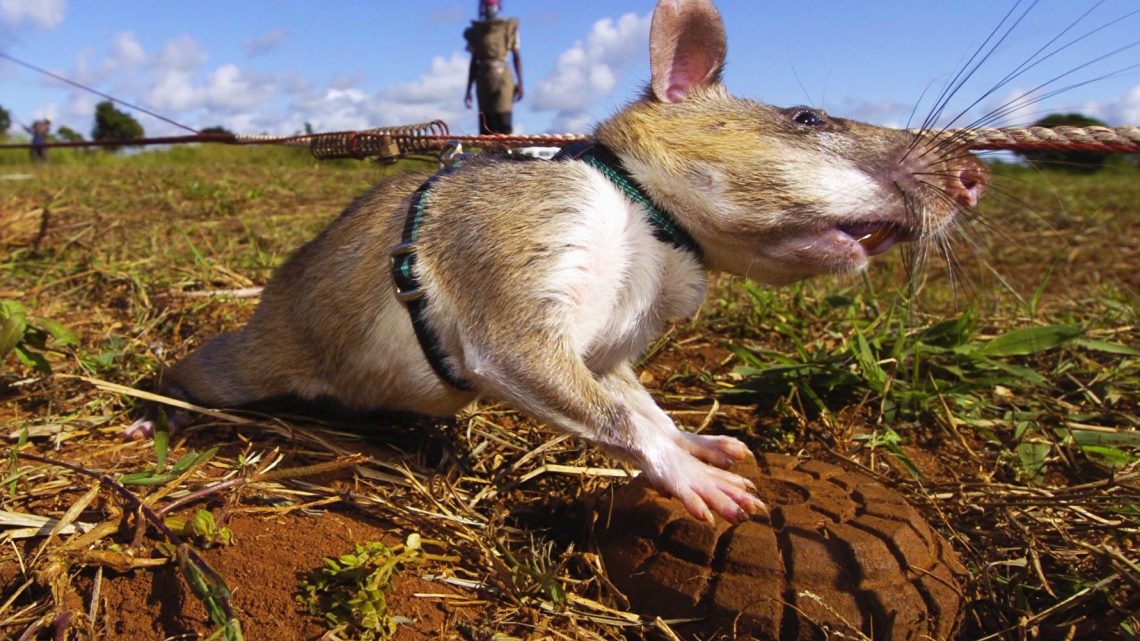
Giant Rats Are Sniffing Out Landmines and Tuberculosis
November 28, 2020This rat could save your life.
Meet Magawa, the “hero rat” with the super sniffer. He’s made headlines for receiving the animal world’s highest medal of honor for his life-saving work detecting unexploded landmines across Cambodia. Magawa’s highly sensitive nose and agility has set him apart from dogs and other detection animals who’ve won the award in the past.
The African giant-pouched rat is much faster than humans at landmine detection: It can search an area the size of a tennis court in 30 minutes, while a human de-miner can take as long as four days.
While Magawa enjoys his viral fame, his brothers and sisters are training their noses at the nonprofit APOPO in Tanzania to help sniff out other threats to humankind. According to the organization, these rats can detect tuberculosis faster and more accurately than standard detection in developing countries. One rat can sniff 100 tuberculosis samples in less than 20 minutes, while a lab technician might take at least 4 days.
“Our rats and team at APOPO have been able to increase case detection by more than 40% that translates into more than 18,000 people that had originally not been diagnosed at the health clinics,” Cindy Fast, APOPO’s head of training and research, told VICE World News. That’s a big deal for fighting the world’s deadliest infectious disease, which kills nearly 1.5 million people every year.
Turns out the hero rats’ powerful noses can be used on just about anything that has an odor profile. So they’re currently in training to detect illegally trafficked wildlife, specifically pangolins, by sniffing outside of shipping containers. And they’re also being trained to lead search-and-rescue missions following earthquakes and other natural disasters—their size and nimbleness allows them to sneak under rubble to find trapped humans.
Researchers like Fast are also hopeful the rats could use their noses to detect different cancers, as there may be changes in metabolic processes or tumor growth that emit an odor that rats could pick up.
Other rat and rodent species might have a sensitive nose, but they don’t live long enough to be trained in the same way African giant-pouched rats are. Hero rats can live at least seven years, which is plenty of time to become a hero.

